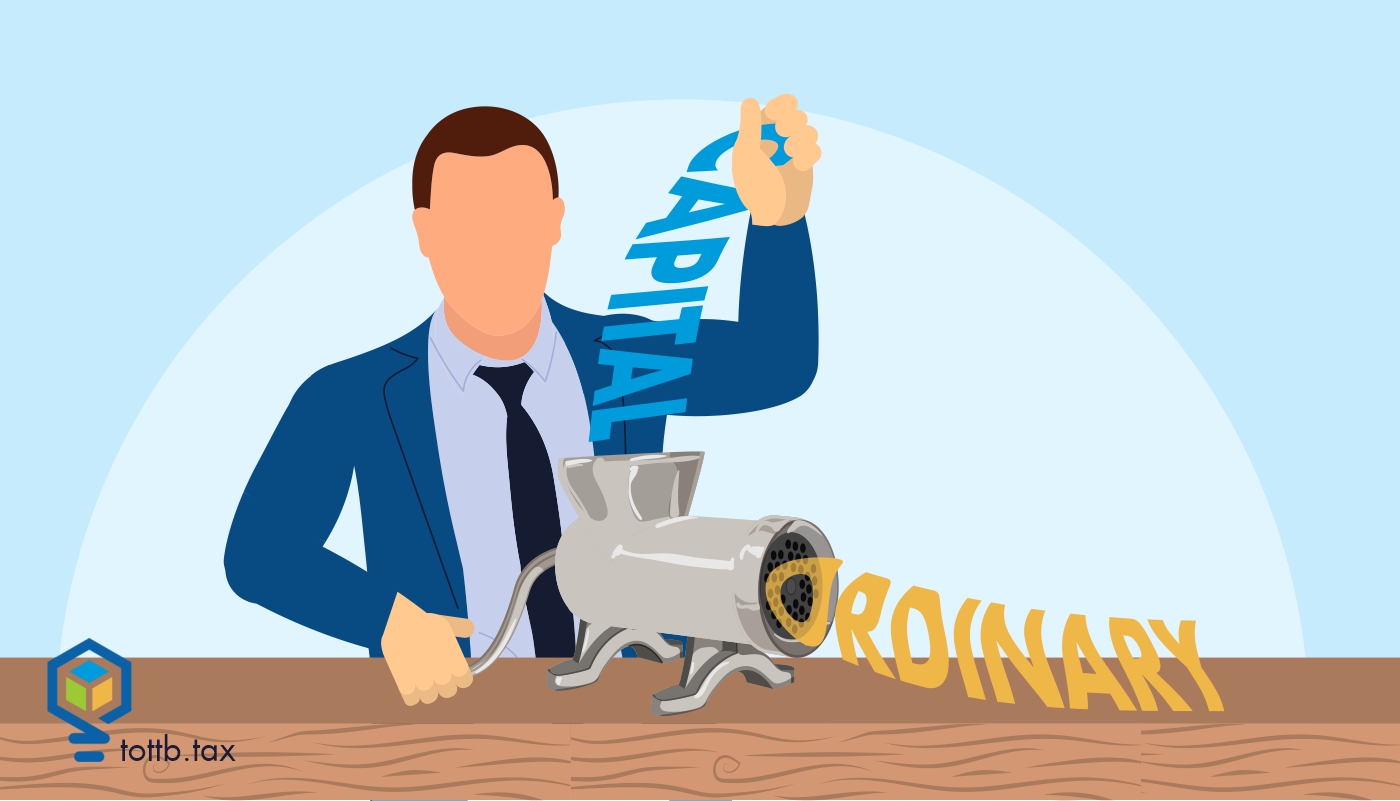CURRENT EDITION

Tackling Taxes On an Inherited HSA
The Health Savings Account (HSA) is a first line of defense tax strategy. Contributions are deductible and earnings are tax-free if used for qualified medical expenses. There are numerous features to the HSA that secure maximum tax benefits. Structured properly, an HSA can provide serious tax-free money to beneficiaries as well as the account holder. Before we review the implications of inheriting an HSA, let’s review some of the powerful features an HSA has that increases the value of the account.
READ MOREDivorce and Taxes
“Timalyn, Alyssa and I filed for divorce, and we will finalize everything before Thanksgiving. Does this change things for our taxes?” “No! Can we wait until January 1?” were my initial thoughts. But then I realized that if this news blindsided me, the seemingly happy couple was probably also scrambling for answers. They were looking to me to be calm during an upcoming storm. To give you some context, I had helped this family lower their back taxes by $16,000 and get a payment plan that worked well with their cash flow. Then, by implementing a few strategies they had just saved an extra $20,000 on their last tax return. We were planning on saving them even more money in upcoming years. Then, that is when it happened. Divorce. I never saw this happening, so I never prepared for it. But if it happened to me, it will happen to you. Clients divorce. Some of the things we are going over today may seem obvious to you. But remember what is obvious to us as tax experts is not obvious to our clients, especially if they are going through a life-changing event such as divorce. Here are four things you need to inform your client about when it comes to their divorce and taxes...
Read MoreFacts, Circumstances, and Forever Stamps
The price of a forever stamp increased from $0.58 to $0.63 on January 1, 2023. A tax pro posted this fact as a public service announcement on Facebook. Of course, tax pros being tax pros, someone chimed in, “Do I have to recognize a capital gain upon disposition of my forever stamp?” And of course, someone (me) felt obliged to answer, “It depends.” A direct message followed this bit of tax drollery on Twitter that says, “In theory, if I’m holding stamps as an investment, they would be a capital asset.” And so it begins…
Read MoreCrypto Charitable Deduction Compliance – Mission Impossible?
Reilly’s Fourth Law of Tax: “Execution isn’t everything, but it’s a lot” might be amended when it comes to charitable deduction of property, because there you have an area where execution is almost everything. It is also an area that dramatically illustrates the Seventh Law: “Read the instructions.” In January, we received guidance from the IRS on the reporting requirements for charitable contributions of crypto currency . If you have followed IRS guidance on crypto and know something about charitable donation reporting requirements, the result shouldn’t surprise you , but maybe it will. The most disturbing part of the story is that the IRS may be asking for something we can’t provide...
Read MoreTax Court Roundup – May 2023
As always, much has happened in the tax courts this past month; let's jump right in!
Read MoreGetting Maximum Value from Small Business Stock Losses
When an individual sells a stock for a loss, it is a capital loss, and Congress makes it difficult for individuals to use their capital losses. The tax law only allows capital losses to the extent of capital gains. If capital losses exceed capital gains, the individual can only use up to $3,000 per year against ordinary income ($1,500 if married filing separately). However, there is a way around this rule: Losses on Section 1244 stock are ordinary losses, and claiming this valuable tax benefit allows an individual to save thousands of dollars in tax in the year of sale compared to the standard capital loss treatment. Let’s review what qualifies as Section 1244 stock, what benefits a taxpayer can get from Section 1244 stock, and how to claim those benefits on a tax return.
Read MoreKey Lessons from 2022 Tax Rulings
This article does not summarize key rulings of 2022, but instead offers some key lessons and reminders from 2022 tax opinions as well as a few IRS rulings. If you want to read the ruling, see the citations and links. Takeaways from a few state tax rulings that have a lesson of relevance beyond the particular state are also included...
Read MoreHow Things Go Criminal
If you were to ask most taxpayers what they worry about when it comes to their tax returns, they might say an unexpectedly high tax liability or even a late penalty. Next to none will worry they are at risk for criminal prosecution. There is a sound reason for this. In the fiscal year ending September 30, 2021, taxpayers filed over 261,000,000 tax returns. During that same period, IRS Criminal Investigation (CI) initiated only 2,581 investigations—a paltry 0.00098% of all tax returns filed. While CI entanglements are not a common experience, there are still lessons to be learned from looking at how things can go awry. So what types of scenarios have resulted in criminal investigations by the IRS, and what can this teach the everyday taxpayer? First of all, working with an expert, such as a Certified Tax Planner, will help you better understand what is permissible by the IRS and reassure you that your returns are fraud-free. For a few tips on what not to do, read the cases below and review our key takeaways for each one.
Read MoreHome Sale Rules for Newlyweds and Significant Others
Question: A spouse didn’t meet the residence test when the home sold because they weren’t legally married for two years on the date of the house sale. You indicated, however, the spouse is eligible for the home exclusion because by the end of the year they were married for two years Answer: If you want to understand how getting married impacts your ability to take tax-free profit, we must look at two issues and pass two tests. To take the full 121 exclusion deduction amount ($250,000/$500,000), first you have to determine filing status. If you were married or an RDP as of December 31, 2022, even if you did not live with your spouse/RDP at the end of 2022, your filing status is either Married Filing Joint or Married Filing Separate. Either way, the IRS considers you married for tax purposes. Now that you’ve determined that the client’s filing status is married, the potential gain exclusion is $500,000 under Section 121. But there are two important tests to apply to see whether you can exclude the maximum of $500,000 or whether it is going to be less. To learn about these tests, read on.
Read MoreNOT A MEMBER YET?

SUBSCRIBE TO GET ALL OF OUR
GREAT ARTICLES AND RESOURCES!
CURRENT EDITION

Tackling Taxes On an Inherited HSA
The Health Savings Account (HSA) is a first line of defense tax strategy. Contributions are deductible and earnings are tax-free if used for qualified medical expenses. There are numerous features to the HSA that secure maximum tax benefits. Structured properly, an HSA can provide serious tax-free money to beneficiaries as well as the account holder. Before we review the implications of inheriting an HSA, let’s review some of the powerful features an HSA has that increases the value of the account.

Kadau v. Commissioner and the Line Between Effective and Broken Captives
Captive insurance remains one of the most closely examined tax planning strategies in use today, not because it is inherently flawed, but because small missteps can carry outsized consequences. Many taxpayers assume that careful formation and proper documentation are enough to protect the intended tax outcome. A recent Tax Court decision, Kadau v. Commissioner, serves as a reminder that those assumptions deserve closer scrutiny. The court’s analysis did not hinge on whether captive insurance can work, but on how a specific arrangement actually functioned in practice. For tax professionals advising clients who rely on micro-captives, the case raises important questions about where structures tend to break down, why some arrangements attract IRS attention while others do not, and what really separates a defensible captive from one that invites challenge.

Not Every Client Is a Keeper: When Saying Goodbye Protects Your Practice
Bad chemistry with one client can disrupt the flow with everyone. That one client who doesn’t follow your processes and messes up the workflow during tax season. The client who never turns things in on time but then wants results from you immediately when they do. These things affect how you interact and work with your other clients as well. As the firm owner we should do whatever we can to protect good chemistry within our business. As a tax advisor the people we work with become our family. We help them make decisions that impact them and their families. That is why firing clients can be a delicate matter when you are doing the firing.









